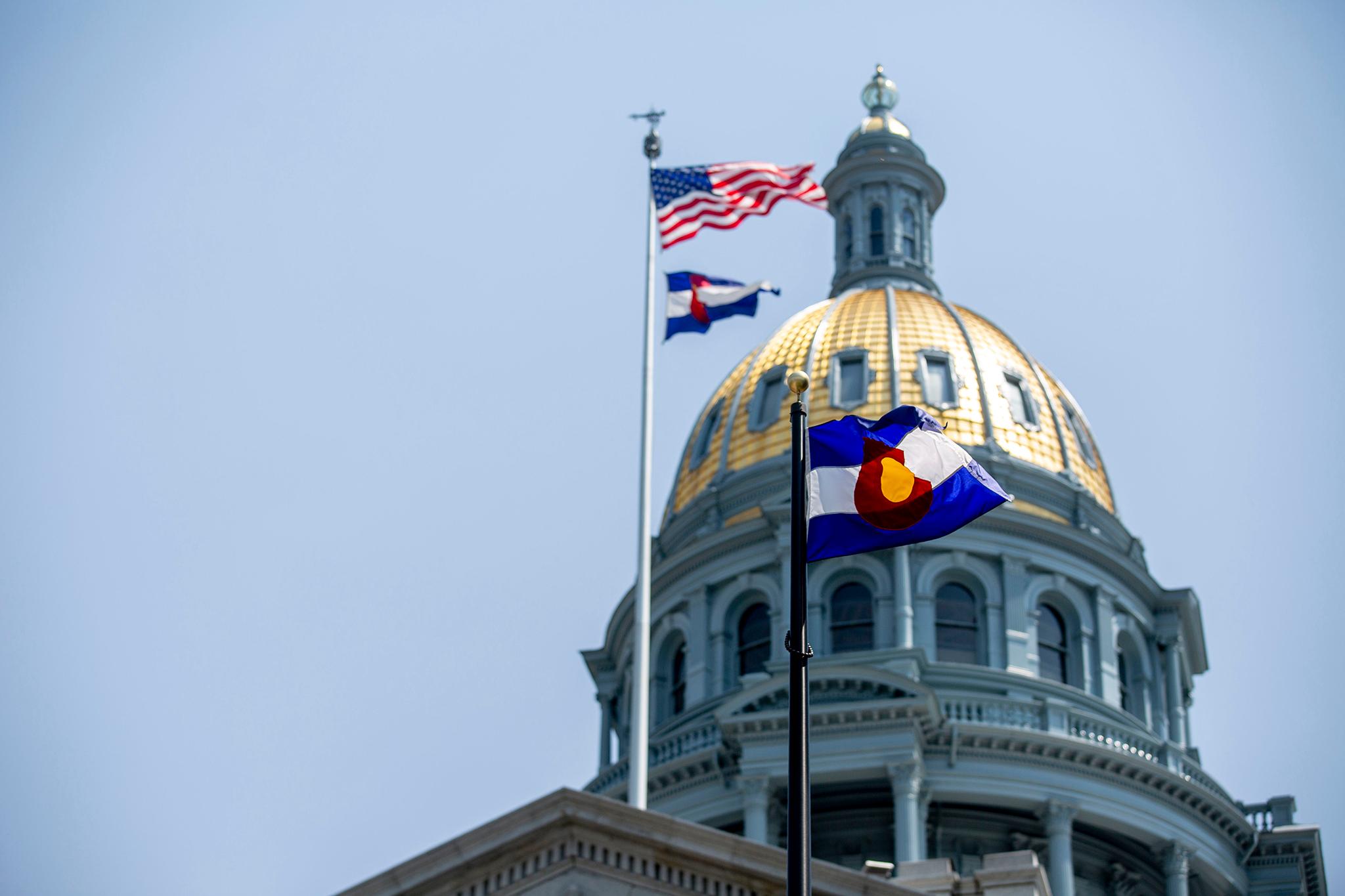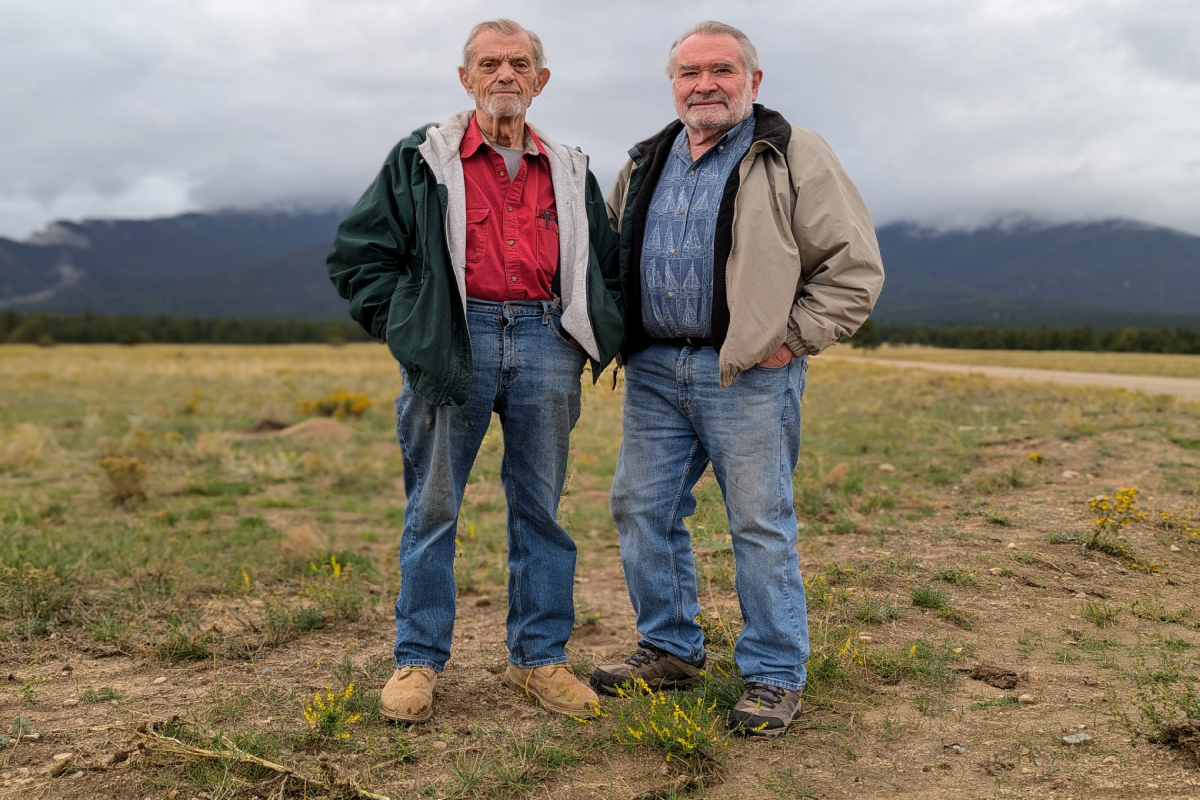
A conservative group has filed a lawsuit accusing Democrats in the statehouse of breaking the state’s open meeting law each year as they plan out Colorado’s state budget — and the move already has Senate Democrats saying they’ll change their approach.
Democratic lawmakers used an anonymous voting system in 2022 and 2023 to make preliminary plans as a group about how to spend tax money and which laws to pass.
Advance Colorado, a conservative group that tries to influence state policy through ballot measures and lawsuits, on Wednesday filed the suit, which seeks to block the semi-secretive planning process. Democrats are using the “secret ballot” system, also known as the “quadratic voting” system, to keep their party’s political debates behind closed doors, the lawsuit alleges.
“I think it's clear that they don't want conflict, right?” said Michael Fields of Advance Colorado. “[Democrats] don't want to be on the record, with [their] name, saying that we pick this over that. And that’s not how the system should work. It should be that everybody knows how each individual thinks about every issue that’s going to be in front of them.”
When KUNC first reported on the anonymized use of the system last year, Democrats received pushback from critics across the political spectrum.
Democrats have defended the practice, saying that it’s only a preference poll, not a formal legislative vote. They point out that bills still have to go through public hearings, debates and votes before they become law. Using the anonymous polling system allows Democrats to have a more efficient, candid conversation as they try to navigate hundreds of bills in a fast-moving session, they argue.
“Knowing where the caucus is on some of these bills really helps make those determinations in that competitive environment for the limited funding that we have. But it is not determinative, it's not the final answer,” said Democratic Sen. Jeff Bridges of Greenwood Village, who chairs the Senate Appropriations Committee and sits on the Joint Budget Committee, in an interview with CPR News earlier this year.
This year, lawmakers set aside $30 million for new legislative spending priorities, which was the focus of the votes in the anonymous polling system. Democrats also released the overall results of the 2023 quadratic voting poll upon request. But they've kept each lawmakers' individual answers secret.
Democratic Senate President Steve Fenberg of Boulder said that the legislature’s lawyers have cleared that approach, saying it’s legal because lawmakers are providing the ultimate results and only withholding the “work product” that went into those results, as allowed under open records law.
He stood by the practice both legally and ethically, dismissing the lawsuit as a “partisan pile-on.” But he said he was ready to take a new approach because he worried about the effects of the lawsuit on public opinion.
“We probably won't be using this software or this system in the future, because I think [Advance Colorado] is exploiting it as a way to have people be more skeptical of the public process and my party in the legislature,” he said.
Fenberg had also told the plaintiffs he plans to discontinue the system, he said, but they sued anyway. He wasn’t sure what the Senate would use in its place.
“I don't know if we'll use anything, or maybe we'll use a public survey or maybe it'll be a public caucus meeting. No one's made any decision,” he said.
Democratic leaders in the House haven’t said if they’ll make changes or continue using the system.
The lawsuit, filed in Denver District Court, asks a judge to ban the practice altogether and force Democrats to turn over records about previous votes.
It’s the second transparency lawsuit of the summer. Two Democratic lawmakers filed a legal complaint earlier this month alleging that both parties routinely break the law by having substantial conversations about public policy without providing the required notice and sending disappearing text messages during public committee hearings.
Here’s how Democrats’ secret-ballot system works:
Each spring, once the legislative session is underway, Democratic senators and representatives are asked to fill out a digital survey. The form lists all the bills that have been introduced that year.
The Democrats then rank the bills, saying which ones are most important to them. Each lawmaker gets a supply of points, which they can then “spend” to promote the bills they like the most.
It’s an important process. Democrats control the legislature, so the party could theoretically come together and pass all the bills they want. But new laws take time to pass, and they cost money, so politicians ultimately have to pick their priorities.
The lawsuit, brought on behalf of two plaintiffs — the conservative nonprofit Public Trust Institute and David Fornof, a man from Douglas County — argues the secret ballots are actually public records since they are correspondence between elected officials. among other claims. The Public Trust Institute filed a records request this year seeking all of the ballots and other materials from this year’s process. The group only received the final aggregated poll results, not the individual votes. Fornof made a similar request.
Sen. Bridges said the Democrats’ polling system allows a larger group of lawmakers to have a bigger influence on legislation rather than just a few powerful budget committee members and legislative leaders.
“And there wasn't really much of a process, much of a way for individual members to have their thoughts on which bill should be prioritized and which bill should maybe not be prioritized,” he said.
Republican politicians have also sought to make the lawmakers’ individual survey results public. During the most recent legislative session, Republican Sen. Barbara Kirkmeyer, a Joint Budget Committee member who represents Weld and Larimer counties, unsuccessfully tried to amend an open records bill to force Democrats to reveal more about these votes.
“When you are setting priorities in your caucus, when essentially you are killing bills, deciding what goes in the budget, what gets funded, what doesn't, when you are voting and making those types of decisions, you are in an open meeting, subject to the Colorado Opens Record Act. The sunshine laws apply,” she said during deliberations.
The lawsuit has not yet been assigned a judge or a hearing date.








